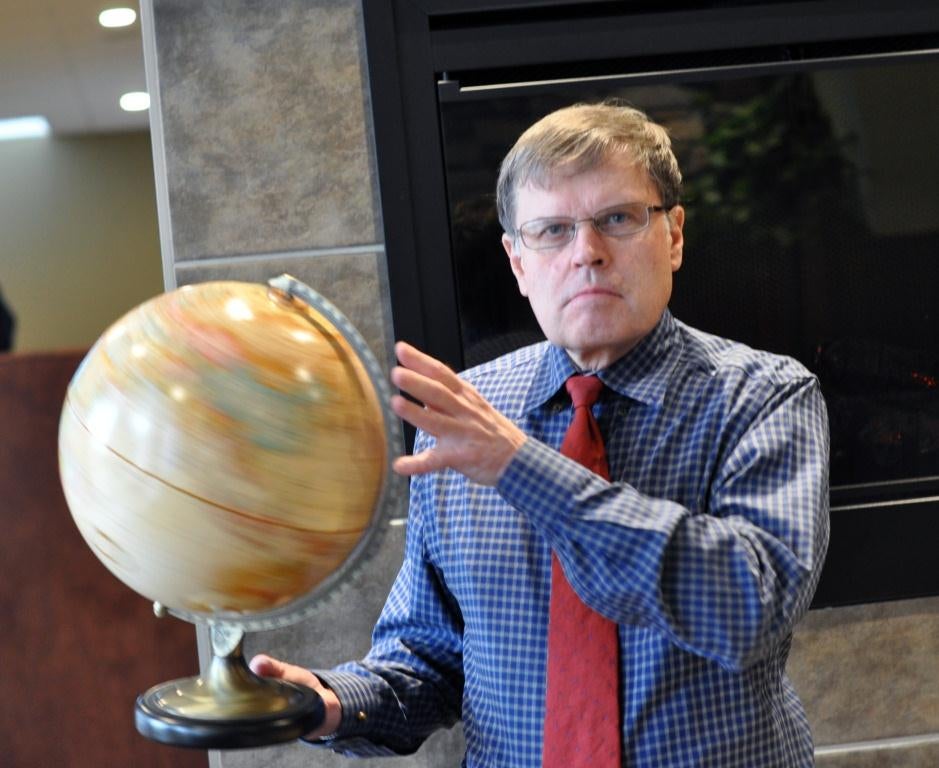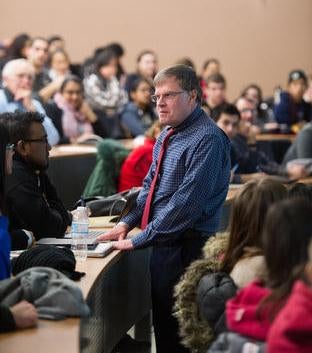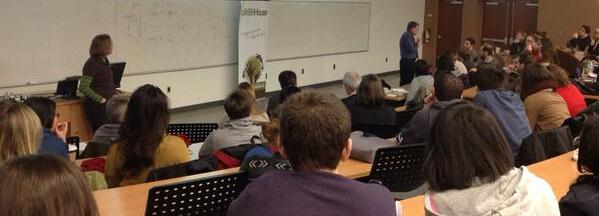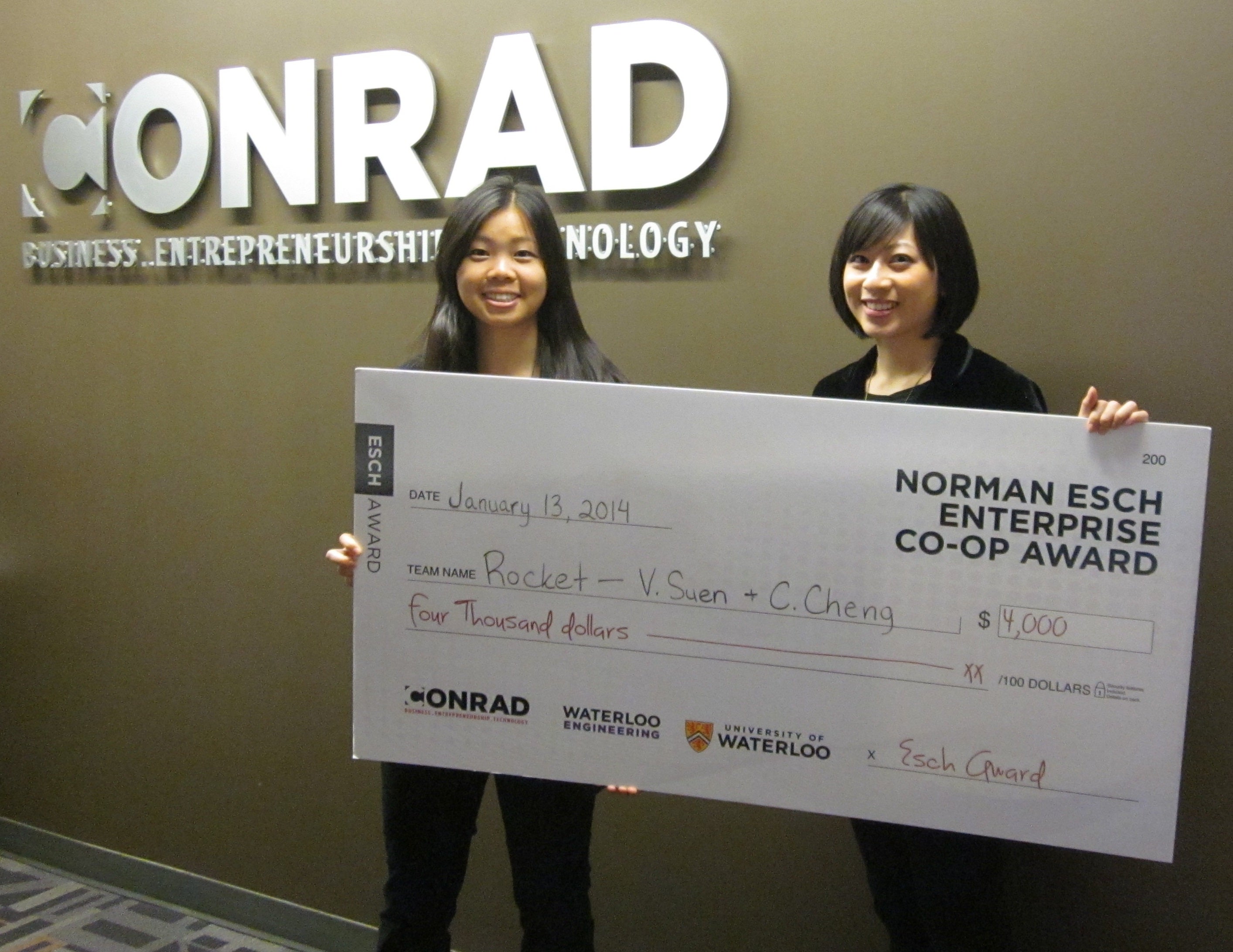
On Tuesday, January 28th, St. Paul's GreenHouse hosted a talk, Larry Smith presents, "So You Want to Change the World."
Victoria Suen, one of the Enterprise Co-op (E Co-op) students that attended the event, wrote about a few of her takeaways:
- Have a big vision.
- Expect more from yourself.
- Consider the challenges you face.
- Ask tough questions.
- Develop your understanding.
- Social enterprises are businesses.
"Change the world. Don’t just make a difference."

Larry Smith's first point was about having a larger vision; to change the world, thought and action needs to be at a greater scale.
That is not to say that the impact made in schools, communities or cities doesn’t matter. It is simply a challenge for people to push themselves to take action beyond their comfortable limits.
Photo by Juil Yoon for Imprint.
Expect more
People need to expect more from themselves. A challenge that all social entrepreneurs must face is whether to celebrate successes or to lament the fact that they were unable to achieve these goals faster. How can social entrepreneurs be satisfied by their impact when there are still so many problems in the world to fix?
On top of that, these challenges seem almost impossible to face for those who are still students, trying to figure out their place in the world.
Consider the challenges
There aren’t any easy answers, but if social entrepreneurs approach their questions like any other entrepreneurs, smaller steps can be imagined toward bigger goals.
For example, consider what problem you are trying to solve. What are the potential threats that can pose a risk against achieving your goals? For social entrepreneurs, these could range from issues with manufacturing or distribution to corrupt governments.
Tackle the tough questions
Once a social entrepreneur has identified these risks, they need to consider how they will minimize the effects on their social enterprise. Sometimes these considerations seem more challenging to figure out than the initial problem the entrepreneur was trying to solve, which was an important lesson that Larry Smith talked about.
Larry Smith urged change-makers to be prepared to ask potentially awkward questions. Social innovators may have to ask if parents pose a barrier to a child’s education, or consider that a political system may be too corrupt to implement a proposed solution.
When the bigger issues at play are ignored, opportunities to make a greater impact may be lost.

GreenHouse Director Tania Del Matto and Larry Smith stand before the crowd.
Develop understanding
As I listened to Larry Smith, many of his ideas resonated with me and my new startup, Rocket, that I launched this term with my co-founder Carrie Cheng. Our business tackles food security by building scalable infrastructure on commercial rooftops to grow and sell produce to communities year round.
As we learn more about our industry and the problems we face, we’ve realized that a huge challenge for us is not only to build our solution but to educate and understand the policies that will enable these new systems to be put in place.
Social enterprises are businesses
We’ve also realized the importance of quantifying our impact as a way to measure our own progress and to legitimize our venture as a business.
I’m not afraid to say that we're a business. I think many social enterprises have a stigma attached to treating their organization like a business. People don’t think it sounds good if they are profiting from an idea that is supposed to help people. I beg to differ; gone are the times of charitable donation.
If we really want to change the world, the role and attitude of social entrepreneurship in business has to be changed.

Rocket hopes to turn under-utilized urban real estate into productive agriculture space that is accessible to community members to learn about and purchase locally-grown food.
Read more about the talk in Imprint's article, Do it faster: Larry Smith's guide to changing the world.
You can also watch the full video of the talk: